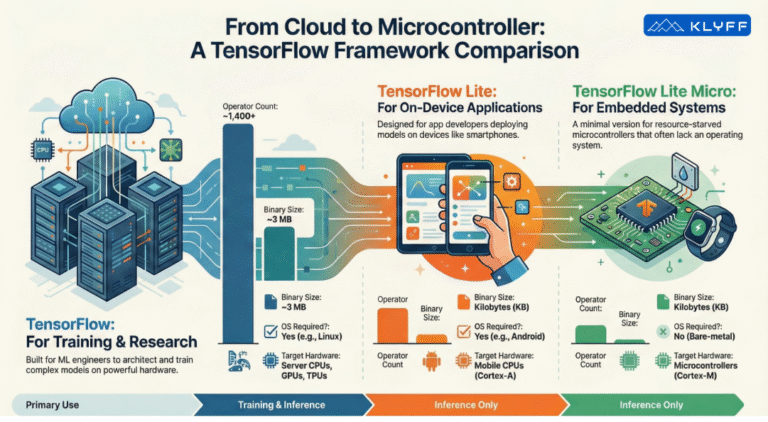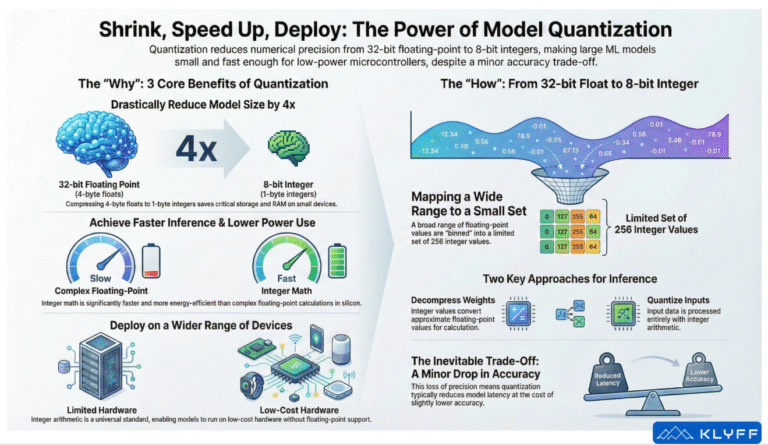
The global agricultural sector is facing unprecedented challenges. With the world’s population projected to reach 9.8 billion by 2050, the demand for food is increasing exponentially. At the same time, agriculture significantly contributes to greenhouse gas emissions, accounting for almost a fifth of the total. Climate volatility, labor shortages, and the need to produce more food with fewer resources compound these challenges.
To address these issues, the agriculture industry is turning to technology, and Edge AI has emerged as a transformative force. Edge AI empowers farms to analyze data in real time, automate processes, and make data-driven decisions that increase efficiency, reduce waste, and promote sustainability.
Understanding Edge AI
Edge AI involves processing data locally on devices such as sensors, drones, and tractors, rather than sending it to a centralized cloud server. This enables real-time analysis and decision-making, even in remote areas with limited connectivity. In agriculture, Edge AI is used to monitor soil conditions, weather patterns, crop health, and livestock behavior. By analyzing this data, Edge AI systems can optimize irrigation, detect pests and diseases early, and automate harvesting.
Benefits of Edge AI in Agriculture
Edge AI offers numerous benefits to the agriculture industry. These include
- Increased Efficiency and Productivity: Edge AI enables precision agriculture, where resources are applied only where and when they are needed. This minimizes waste and maximizes yields. For example, AI-driven smart irrigation systems adjust water distribution based on real-time soil moisture analysis, reducing water usage by up to 25%. Al-powered pest detection systems reduce pesticide application by up to 30%.
- Reduced Costs: By optimizing resource use and automating tasks, Edge AI can significantly reduce costs. Autonomous farming systems, such as self-driving tractors and robotic weeders, can decrease labor costs. This is especially important given the shrinking agricultural workforce and rising labor costs.
- Improved Sustainability: Edge AI promotes sustainable farming practices by minimizing the use of water, fertilizers, and pesticides. This helps to protect the environment and ensure the long-term viability of agriculture.
- Enhanced Decision-Making: Edge AI provides farmers with real-time insights into their operations, enabling them to make more informed decisions. For example, AI-powered livestock monitoring systems can detect early signs of illness or distress, allowing farmers to intervene quickly and prevent disease outbreaks.
- Scalability and Resilience: Edge AI solutions can be easily scaled to accommodate the needs of farms of all sizes. By processing data locally, farms can operate independently of volatile labor markets and cloud infrastructure, increasing their resilience to climate shocks and supply chain disruptions.
Use Cases of Edge AI in Agriculture
Edge AI is being used in a variety of agricultural applications, including:
- Precision Agriculture: Edge AI enables hyper-localized resource management, where every plant, soil patch, and livestock animal receives tailored care. This is achieved by analyzing data from various sources, such as multispectral drone imagery, soil moisture sensors, and weather forecasts. Al models can distinguish crop rows from weeds with high accuracy, enabling targeted herbicide applications.
- Autonomous Farming: Edge AI powers self-driving tractors, robotic weeders, and other autonomous machinery that can operate independently of human intervention. These systems can navigate fields, adapt to terrain changes, and avoid obstacles in real time.
- Livestock Monitoring: Edge AI enables real-time livestock health monitoring and behavioral analysis. Computer vision and biometric tracking identify and monitor animals individually, while AI-powered behavioral analysis detects deviations in movement, feeding, and social interactions, flagging early signs of illness or distress.
- Crop Monitoring: Edge AI is used to monitor crop health and growth using drones and sensors. These systems can detect diseases, pests, and nutrient deficiencies early, allowing farmers to take corrective actions before significant damage occurs.
Examples of Edge AI in Agriculture
- CrackSense: This project uses real-time sensing to ensure fruit quality for crops like citrus, pomegranate, and table grapes, reducing spoilage and waste.
- Smart Irrigation Systems: Edge AI-powered smart irrigation systems dynamically adjust water distribution based on localized soil moisture analysis, cutting water usage.
- AI-Powered Pest Detection: These systems can reduce pesticide application by detecting pests early and enabling targeted treatments.
- Autonomous Farming Machinery: Self-driving tractors and robotic weeders use Edge AI to navigate fields and perform tasks without human intervention.
Call to Action
Edge AI is transforming the agriculture industry, offering unprecedented opportunities to increase efficiency, reduce costs, and promote sustainability. For stakeholders and decision-makers in agribusiness, the question is not whether to adopt Edge AI, but how swiftly they can transform data into actionable foresight.
We understand that implementing Edge AI solutions can be complex. That’s where we come in. Our team of experts can help you navigate the complexities of Edge AI and develop customized solutions that meet your specific needs. We offer end-to-end services, from consulting and design to implementation and support based on our Lightening Fast Edge AI platform – Klyff.
Contact us today to learn more about how Edge AI can revolutionize your agricultural operations and help you achieve a sustainable and profitable future.



